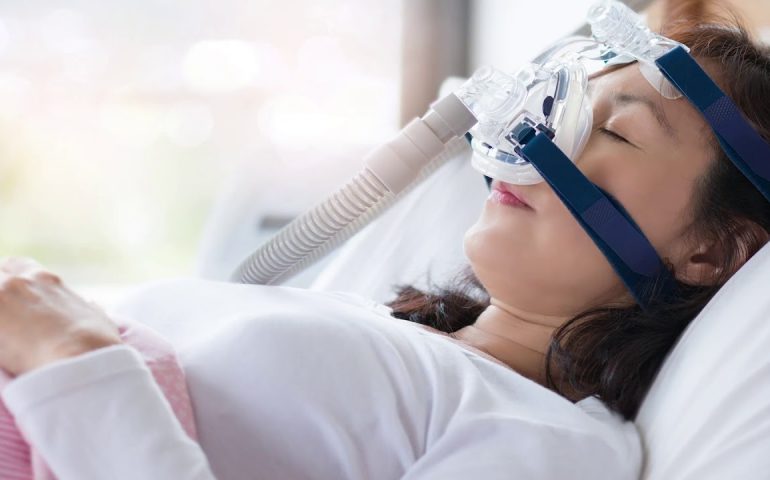
Sleep Apnea
What is Sleep Apnea? Sleep apnea refers to repeated blockages of the airways during sleep due to airway narrowing. These blockages can last for a few seconds to minutes and significantly impact sleep quality.
Symptoms of Sleep Apnea:
- Loud snoring
- Feeling of breathlessness during sleep
- Sudden awakening with gasping for air
- Excessive daytime sleepiness
- Difficulty concentrating and memory problems
- Morning headaches
- Increased appetite and weight gain
Prevalence of Sleep Apnea: Sleep apnea is a widely prevalent issue globally. The risk of sleep apnea increases with age and is more common in males.
Is Sleep Apnea Dangerous? Yes, sleep apnea poses significant health risks. The sleep disruptions due to pauses in breathing can increase the risk of heart disease, hypertension, stroke, and diabetes.
Sleep Apnea and Daytime Sleepiness: Individuals with sleep apnea often wake up feeling tired due to insufficient restful sleep throughout the night. Additionally, they frequently experience excessive daytime sleepiness. This can negatively impact work performance and daily life.
Risk Factors for Sleep Apnea:
- Obesity
- Advanced age
- Family history
- Smoking
- Alcohol and sedative use
- Issues such as polyps or nasal structure
What to Do When Suspecting Sleep Apnea? If signs of sleep apnea are noticed, it is crucial to consult a sleep specialist or neurologist. A sleep test (polysomnography) may be conducted to diagnose sleep apnea.
How is the Severity of Sleep Apnea Determined? The severity of sleep apnea is determined based on the results of the sleep test. The number and duration of breathing pauses during sleep are assessed.
Can a Sleep Test Be Conducted at Home? Yes, for mild or moderate cases of sleep apnea, a sleep test can be conducted at home (home sleep monitoring). However, severe cases may require more detailed evaluation in a hospital setting.
Diagnostic Methods for Sleep Apnea: Diagnostic methods for sleep apnea include polysomnography (sleep test), home sleep monitoring, daytime sleepiness tests, and airway evaluations (e.g., laryngoscopy).
Does Sleep Apnea Increase the Incidence of Other Diseases? Sleep apnea can increase the risk of heart diseases, strokes, diabetes, and obesity.
What Should Sleep Apnea Patients Pay Attention To?
- Adhering to the treatment plan
- Avoiding obesity or working towards weight loss
- Abstaining from alcohol and tobacco
Questions and Answers:
- What is sleep apnea? Sleep apnea refers to repeated pauses in breathing during sleep.
- What are the symptoms of sleep apnea? Symptoms can include loud snoring, breathing pauses during sleep, and excessive daytime sleepiness.
- Is sleep apnea common? Yes, it is widely prevalent globally.
- Is sleep apnea dangerous? Yes, it poses significant health risks.
- Why do sleep apnea patients wake up tired and feel sleepy during the day? Disrupted sleep quality during the night leads to feeling exhausted in the morning and experiencing daytime sleepiness.
- Who is at risk of developing sleep apnea? Individuals with factors such as obesity, advanced age, and family history are at risk.
- How is the severity of sleep apnea determined? Severity is determined based on the number and duration of breathing pauses during the sleep test.
- Can a sleep test be conducted at home? Yes, for mild to moderate cases, a sleep test can be done at home.
- What diagnostic methods are used for sleep apnea? Polysomnography, home sleep monitoring, daytime sleepiness tests, and airway evaluations can be used.
- Which diseases are exacerbated by sleep apnea? Sleep apnea can increase the risk of heart diseases, strokes, diabetes, and obesity.
- What should sleep apnea patients be mindful of? Compliance with the treatment plan, avoiding obesity, and abstaining from alcohol and tobacco are important.
- Can sleep apnea be fatal? Without proper treatment, it can lead to severe health issues and, ultimately, be fatal.
- How is sleep apnea treated? Treatment depends on the patient’s condition and can include lifestyle changes, CPAP or BPAP devices, and surgical options.
- How are home-based CPAP and BPAP treatments applied to sleep apnea patients? These devices help keep the airways open and are used during sleep.
Sleep apnea is a significant health concern that can have serious implications. However, early diagnosis and appropriate treatment can help overcome this issue successfully. If you or someone you know shows signs of sleep apnea, consulting a professional is important. Alanya Neurologist Dr. Mustafa Zafer Demirtaş can offer the best treatment approach with expertise in sleep apnea.




